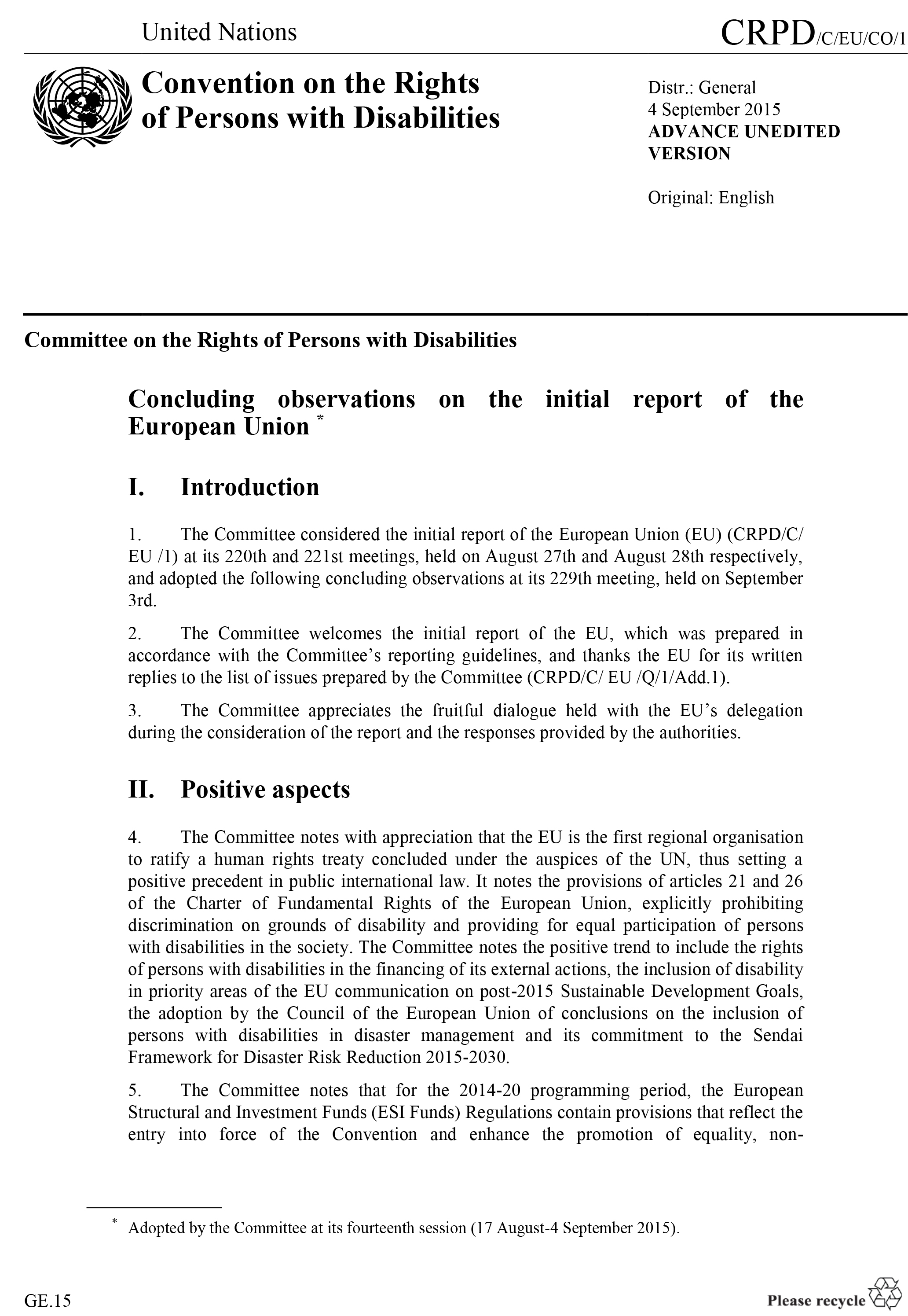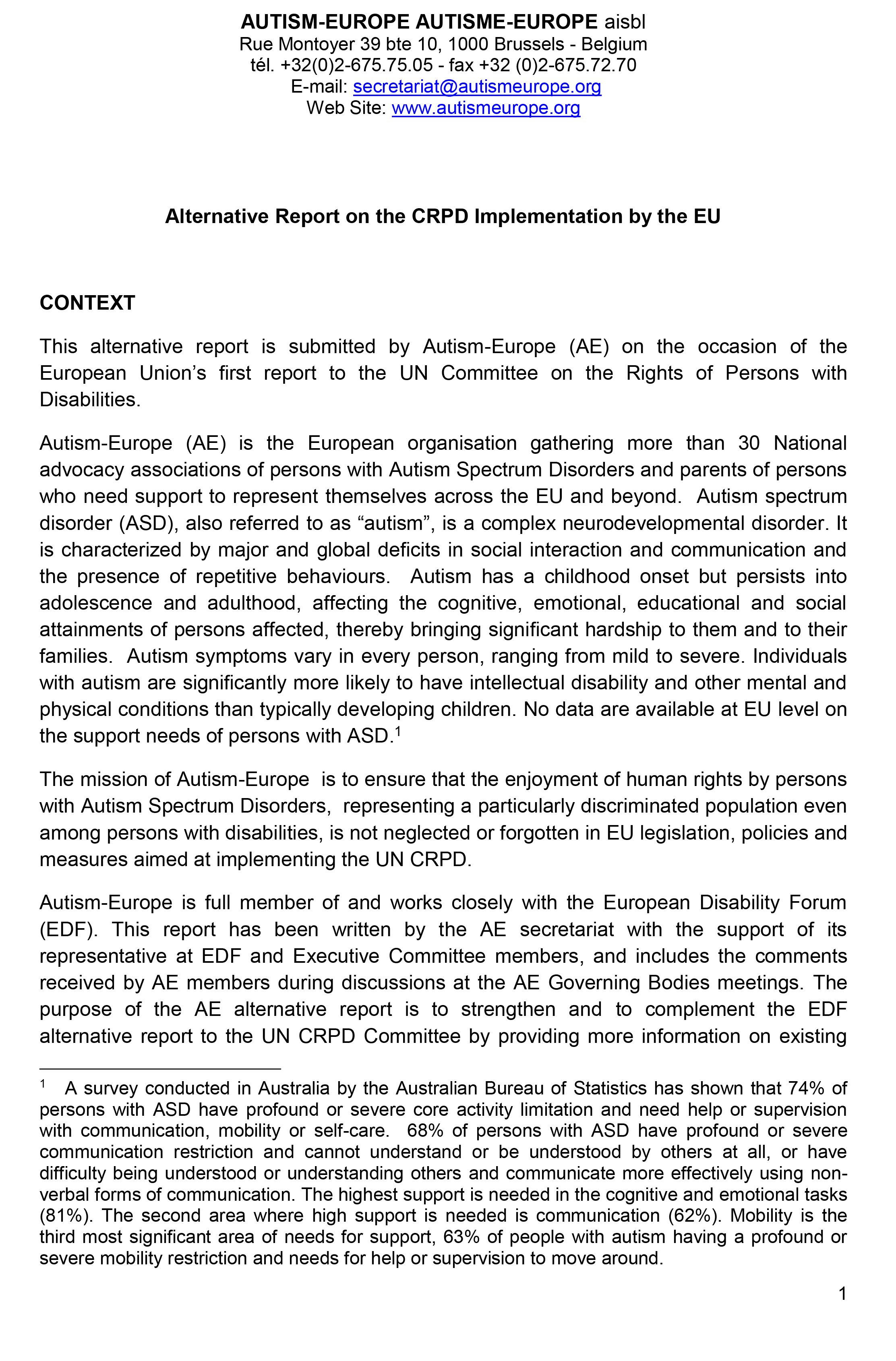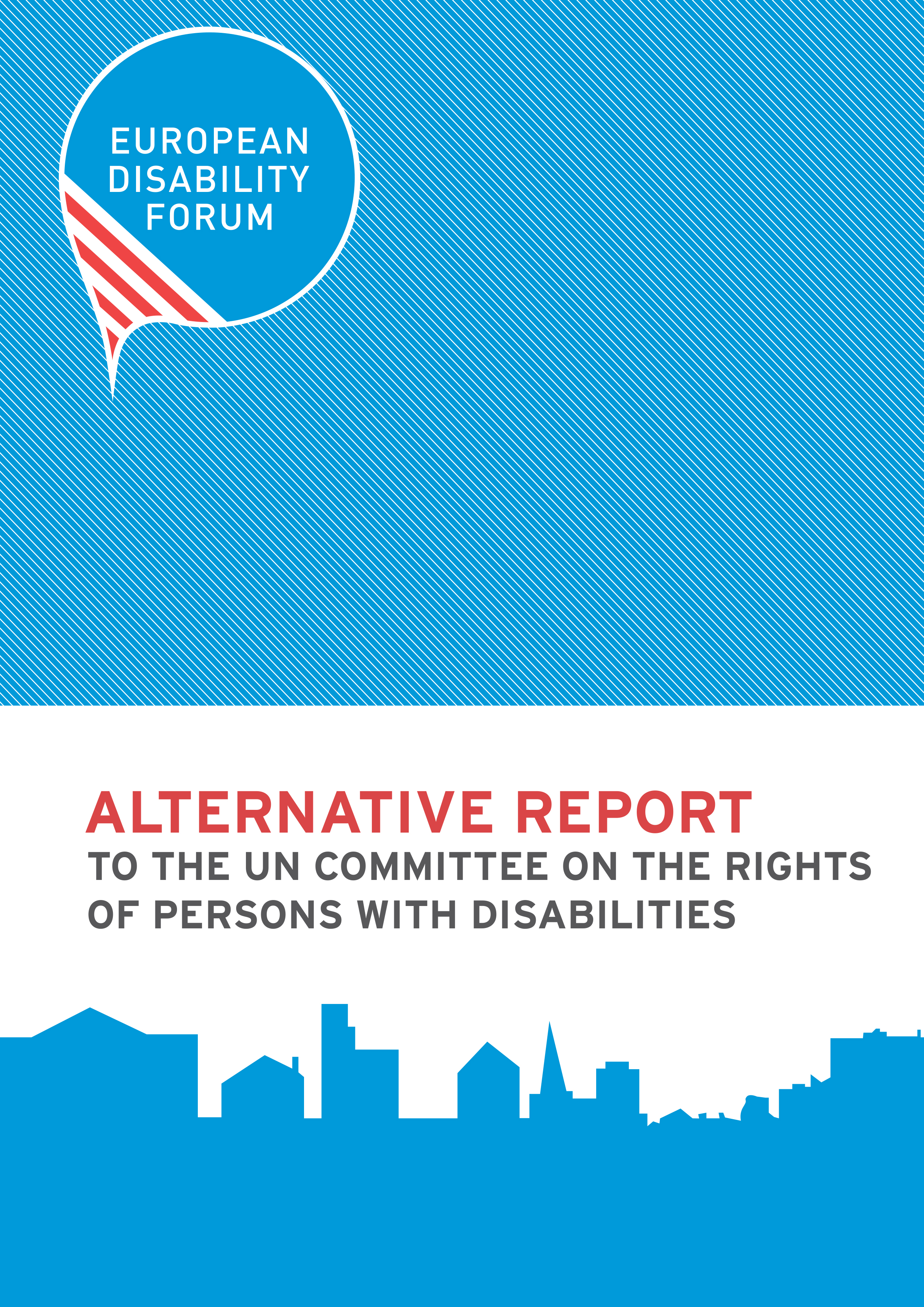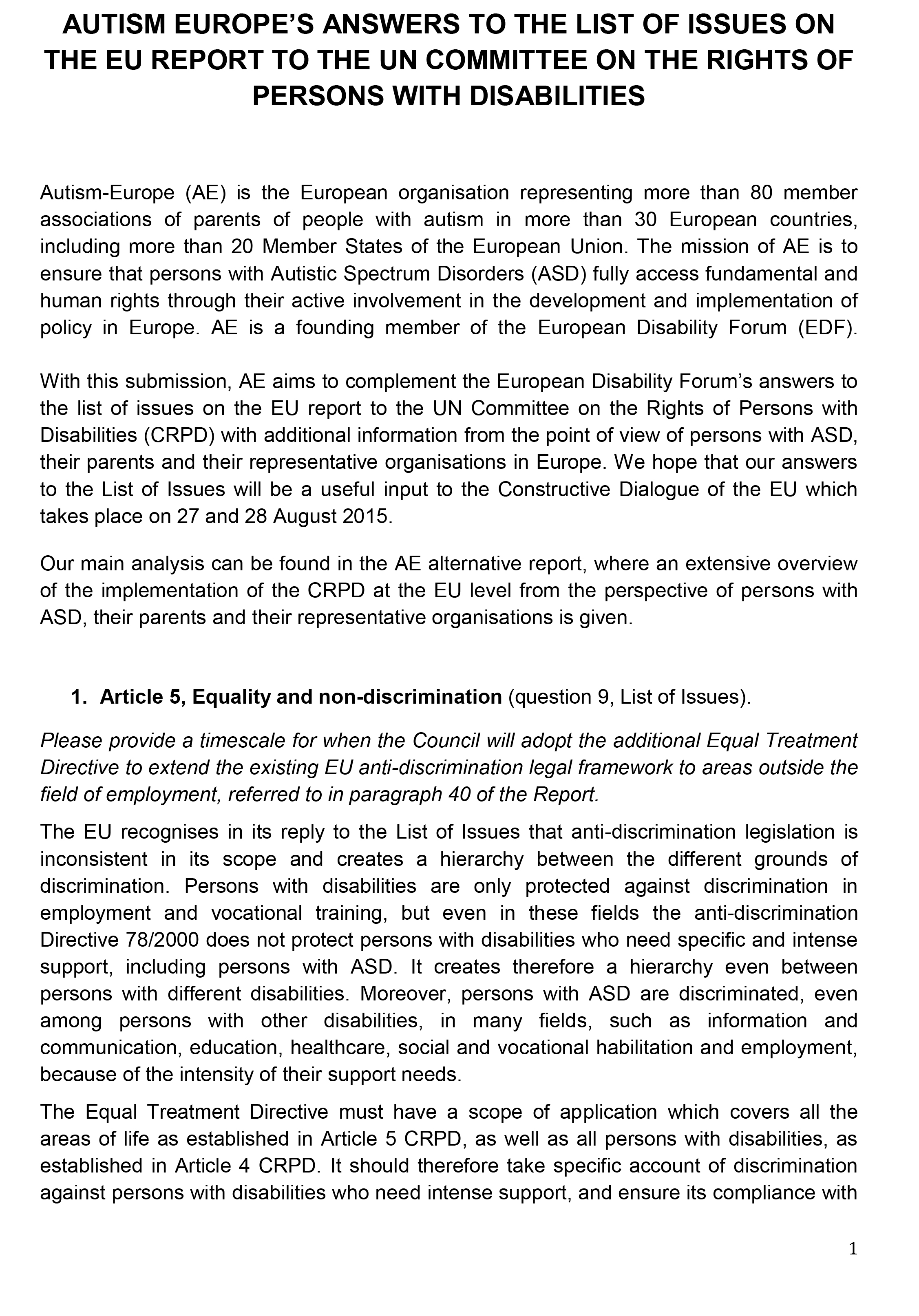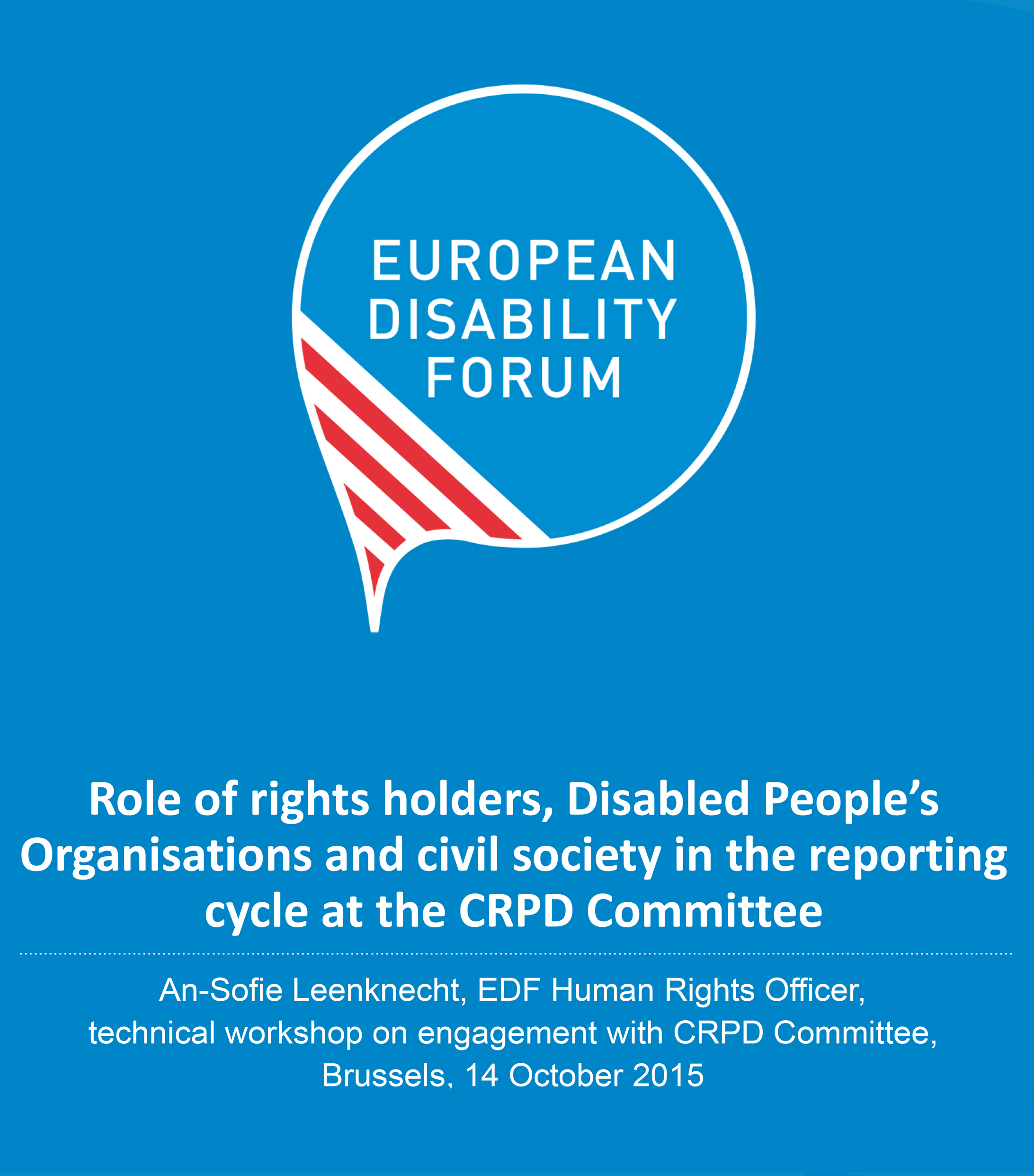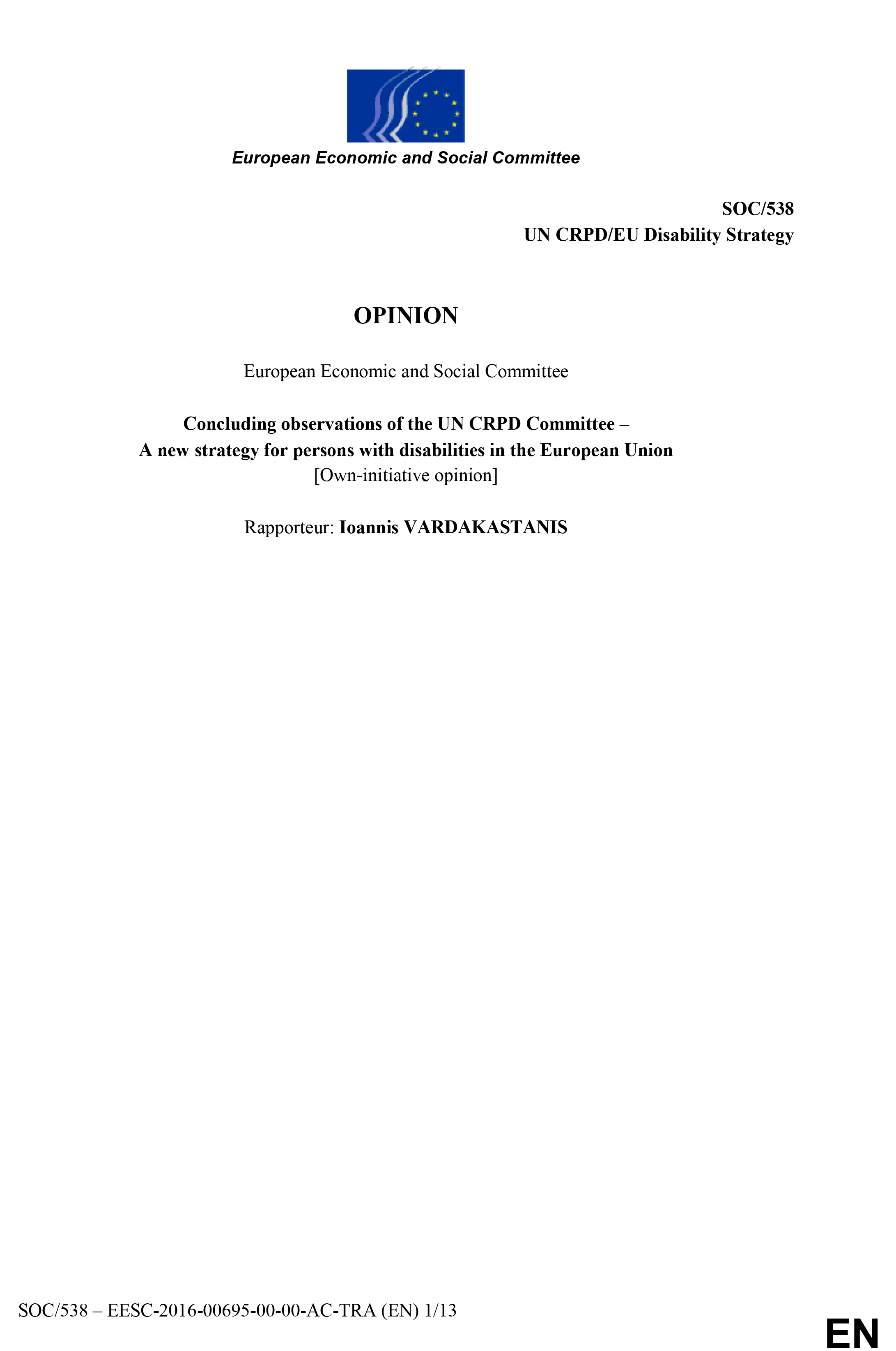
State parties must set up a system of independent monitoring mechanisms, which usually takes the form of an independent human rights institution.
The full participation of civil society, in particular persons with disabilities and their representative organisations, is essential in the monitoring and implementation process. As such, DPOs and self-advocates should be involved in the monitoring process.
International monitoring is achieved via the Committee on the Rights of Persons with Disabilities and the Conference of States Parties (CRPD Committee).
It is for this reason that since 2012, the European Union has set up a mechanism to monitor the implementation of the Convention, called the EU monitoring Framework. The European Disability Forum (of which Autism-Europe is a member) is a full member and Chair of the EU Framework, together with the European Ombudsman, the European Agency of Fundamental Rights and the European Parliament.
In June 2014, the EU prepared and submitted its initial report on the implementation of the Convention to the CRPD Committee. In 2015, the UN Committee reviewed the report and the work the EU had done for its citizens with disabilities. In April 2015, the UN Committee had its first internal discussion on the EU report and prepared a list of questions to send to the EU for issues that require further clarification. This list is called “List of Issues”. After that, the EU had to respond to this List of Issues. In August 2015, the UN Committee met with the EU and discussed the report and the answers to the List of Issues. This is called “constructive dialogue”. As a result, the UN Committee gave its view on how efficiently the EU had implemented the Convention and made recommendations for improvement, known as “concluding observations”.
In January 2025, as part of the European Union’s second review by the CRPD Committee, Autism-Europe once again played an active role in the monitoring process under the Convention. Building on its previous involvement (response to the list of issues), Autism-Europe submitted a comprehensive Alternative Report to the Committee, outlining priority concerns and recommendations from the perspective of the autism community. This report addressed a wide range of issues, including equal access to education, employment, independent living, healthcare, accessibility of information, and protection against discrimination, while highlighting persistent gaps in the EU’s implementation of its CRPD obligations.
In March 2025, Autism-Europe travelled to Geneva to participate in the Committee’s public dialogue with the EU delegation as the final part of the review process. This engagement provided an opportunity to brief Committee members directly, present specific examples of ongoing barriers faced by autistic people, and reinforce the importance of strong, enforceable measures at the EU level. Autism-Europe took part in side meetings and informal exchanges alongside other DPO’s to ensure that the voices of autistic people were reflected in the review discussions.
Following the constructive dialogue between the CRPD Committee and the EU delegation, the Committee adopted and published its Concluding Observations in April 2025. These observations contained a series of recommendations aimed at strengthening the EU’s compliance with the Convention, with specific references to areas that affect autistic people, such as inclusive education, employment support, community-based services, and accessibility of public and digital services.
Autism-Europe subsequently analysed the Concluding Observations in detail, assessing their significance for autistic people and identifying priority areas for follow-up advocacy. This analysis underscored the need for the EU and its Member States to adopt concrete measures to address systemic barriers, ensure the full inclusion of autistic people, and uphold their rights as enshrined in the CRPD.
Read AE’s alternative report here
Read AE’s analysis of the Concluding Observations
